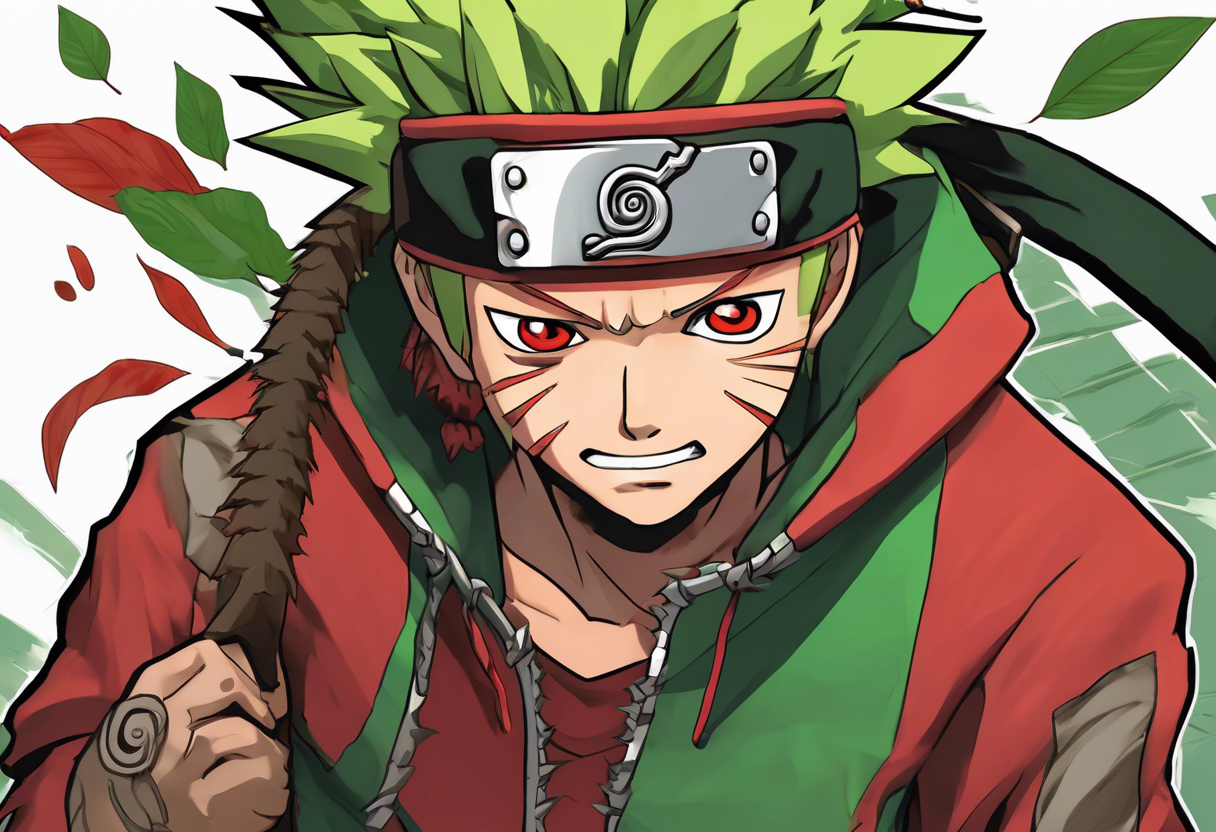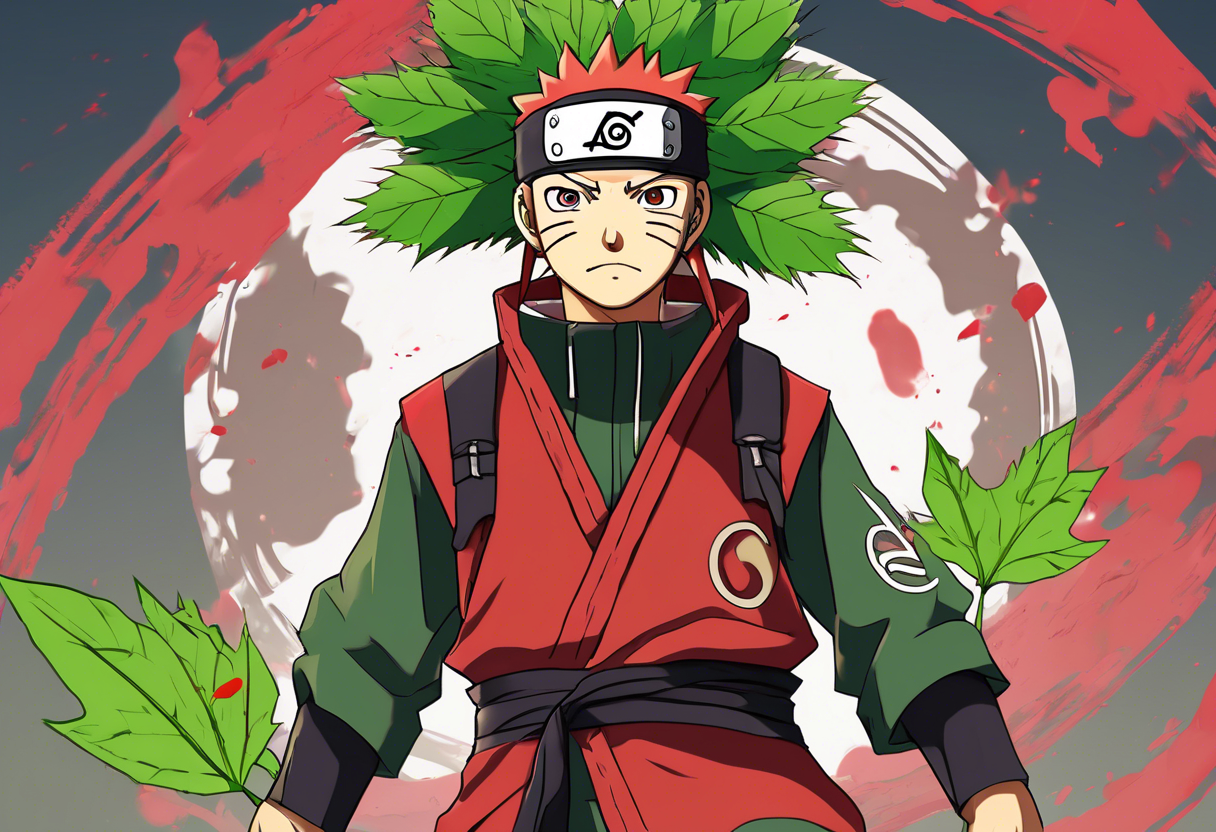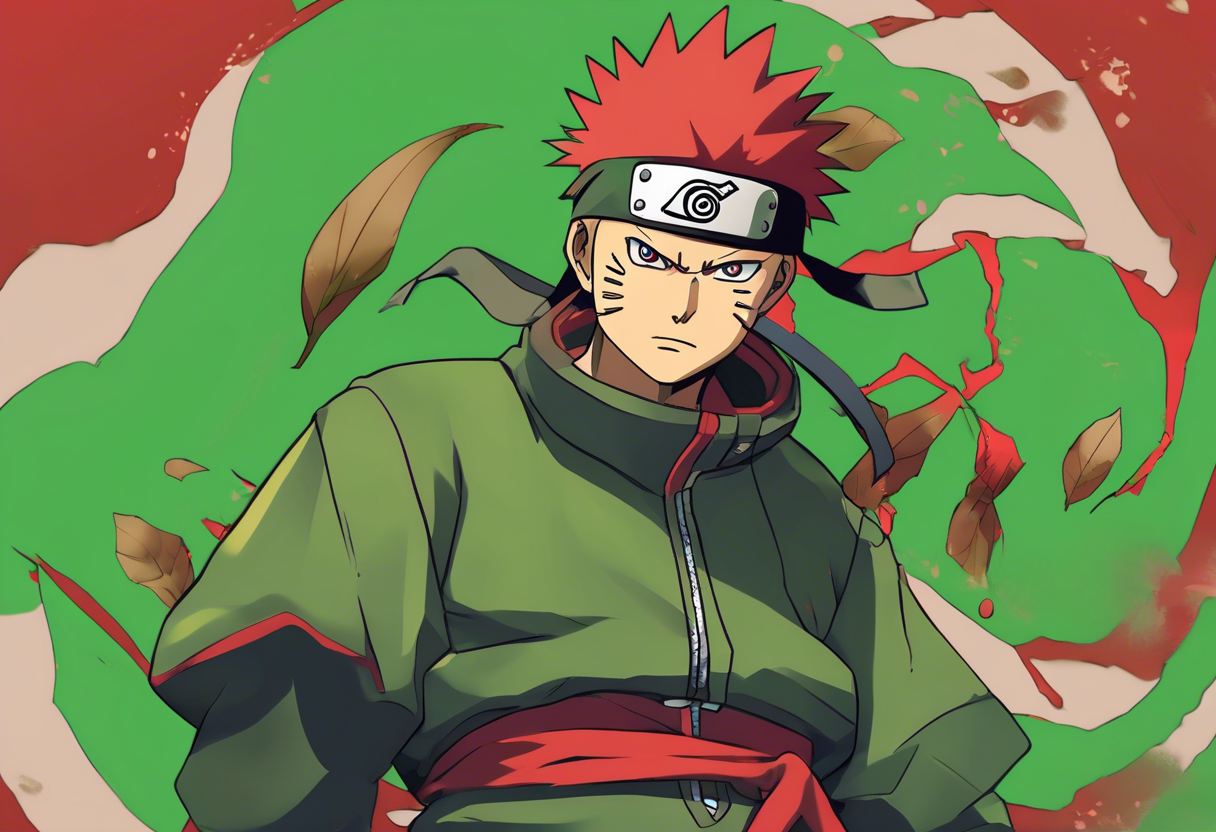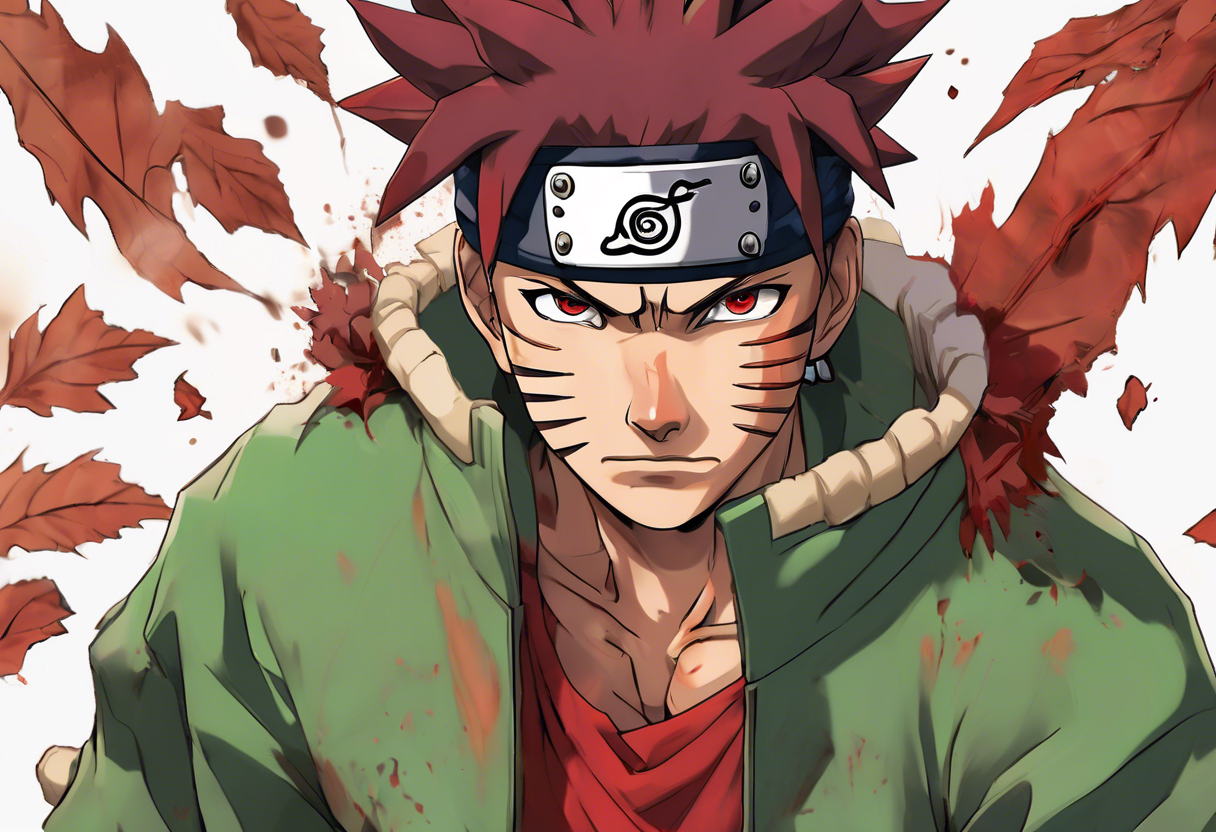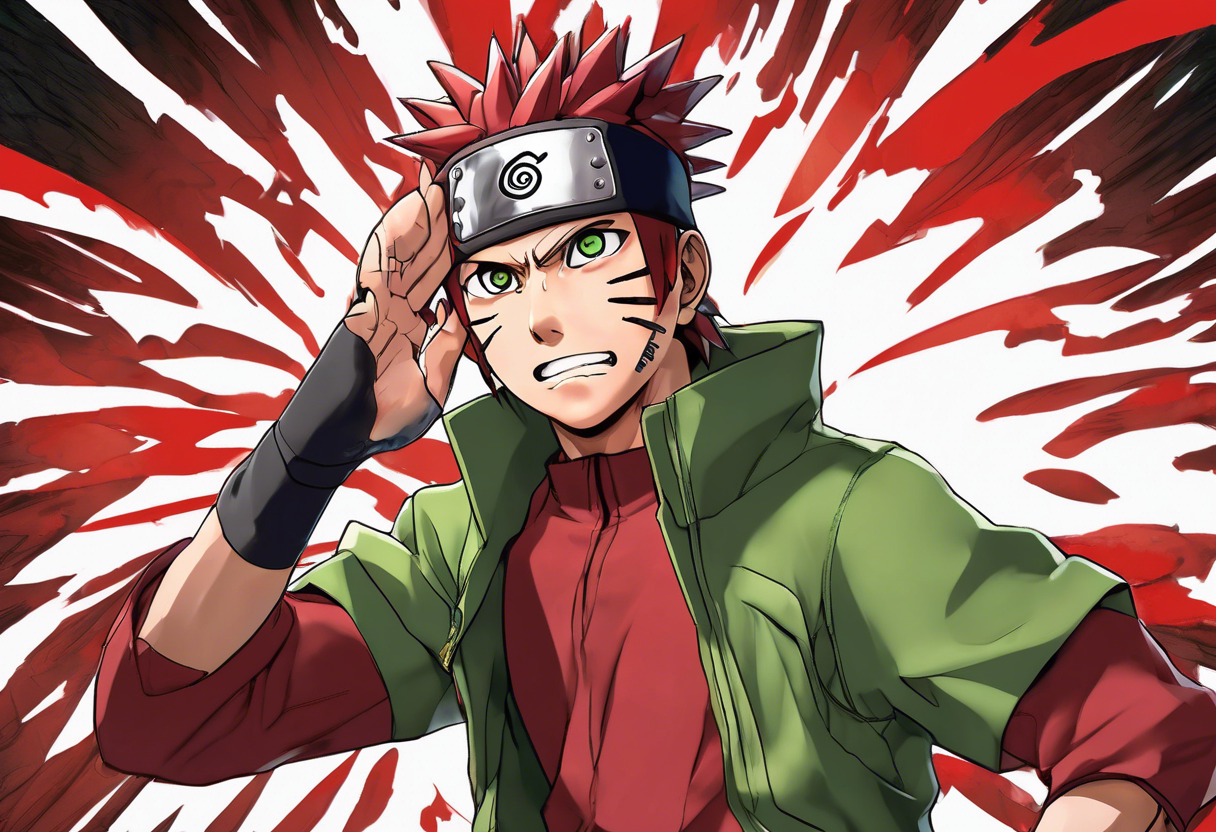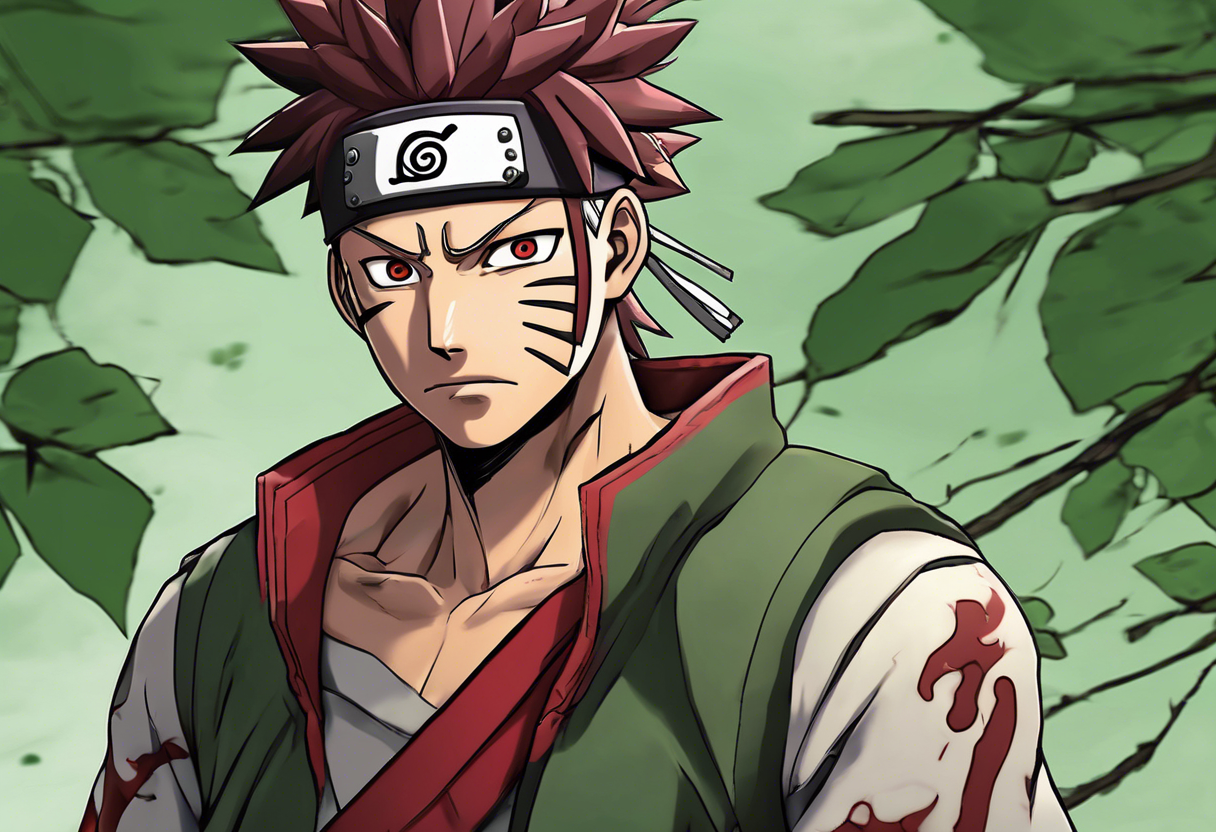Contents
Introduction
Choji Akimichi is a pivotal character in the popular anime and manga series "Naruto," created by Masashi Kishimoto. As a member of the Hidden Leaf Village (Konohagakure) and the Akimichi Clan, Choji is part of Team 10, alongside his friends Shikamaru Nara and Ino Yamanaka, under the guidance of their sensei Asuma Sarutobi.
Choji’s creation and backstory are deeply intertwined with the themes of self-acceptance, loyalty, and personal growth that are central to the "Naruto" series. Born into the Akimichi Clan, one of the strongest clans in Konoha, Choji faced significant challenges during his childhood, primarily due to his weight and the subsequent criticism he received from his peers [1][3].
Despite these struggles, Choji’s defining traits include his kindness, sensitivity, and unwavering loyalty to his friends and family. These characteristics make him a beloved and relatable character within the narrative. Choji’s role in the story is not only as a skilled shinobi but also as a symbol of resilience and the power of personal growth.
Role in the Story
Choji’s storyline in "Naruto" is marked by several key events and conflicts that shape his character and contribute to the overall narrative. Early in the series, Choji is portrayed as a self-conscious and unsure young ninja. However, under Asuma’s guidance, he learns to harness his unique abilities and embrace his strengths.
One of the significant moments in Choji’s journey is during the Chunin Exams, where he faces off against genin from the Hidden Sound Village. Despite initial hesitation and fear for his personal safety, Choji’s determination and loyalty are ignited when his friend Shikamaru is insulted by the enemy. This incident showcases Choji’s willingness to fight and protect his friends, even at the risk of his own safety [1][5].
Another pivotal event is Choji’s battle against Jirobo of the Sound Four. In this confrontation, Choji uses the Three Colored Pills of the Akimichi clan, which significantly enhance his strength but also come with severe physical costs. This battle highlights Choji’s bravery and his willingness to sacrifice for the sake of his friends and village [1][5].
Throughout the series, Choji participates in various missions and battles, including the Fourth Great Ninja War. His experiences during these events contribute to his development as a powerful and confident ninja. Choji’s relationships with his teammates, particularly Shikamaru and Ino, are crucial to his growth and provide a strong support system that helps him overcome his insecurities [3][5].
In addition to his role as a ninja, Choji’s life takes a significant turn as he transitions into family life. He marries Karui, and the birth of his daughter marks a new chapter in his life, showcasing his evolution into a loving husband and father. This transformation adds depth to his character and underscores the importance of family and personal connections in the series [3].
Character Analysis
Choji Akimichi’s personality is a complex blend of kindness, sensitivity, and a deep sense of loyalty. He is known for being a thoughtful and loyal friend, often to a fault. Choji’s kindness and sensitivity are evident in his interactions with his teammates and his unwavering support for them, even in the face of adversity [2][3].
One of Choji’s most pronounced motivations is his desire to protect and support his friends. This is often driven by personal insults or threats to those he cares about, rather than a broader sense of duty or obligation. For instance, Choji’s decision to use the Three Colored Pills against Jirobo was motivated by Jirobo’s insults towards Shikamaru, highlighting his personal and emotional investment in his relationships [1][2].
Choji’s strengths include his tremendous physical strength and his proficiency in taijutsu. As an Akimichi, he has the ability to expand body parts to several times their normal size, using techniques such as the Human Boulder Jutsu and the Butterfly Choji Mode. These abilities make him a valuable asset to his team and a formidable opponent in battle [1][5].
However, Choji also has several flaws that make him a more nuanced and relatable character. His sensitivity to comments about his weight and his tendency to get lost in the moment, often due to his love for food, can be both comedic and poignant. Choji’s low Ni (Intuition) function, as per the Myers-Briggs Type Indicator analysis, means he struggles to see beyond the moment and recognize the bigger picture, which can sometimes hinder his decision-making [2].
Despite these flaws, Choji’s development throughout the series is remarkable. He evolves from a self-conscious young ninja to a confident warrior and a dedicated family man. This growth is facilitated by his strong relationships with his teammates and his experiences in various missions and battles [3].
Themes and Symbolism
Choji Akimichi embodies several themes that are central to the "Naruto" series. One of the most significant themes is the power of friendship and unity. Choji’s relationships with Shikamaru and Ino illustrate the importance of having a strong support system and the bonds that form between teammates. These relationships are a cornerstone of the series and highlight the value of loyalty and mutual support [1][3].
Another theme that Choji represents is the struggle with self-acceptance and personal growth. His journey from being a self-conscious child to a confident adult is a powerful narrative that resonates with audiences. Choji’s ability to overcome his insecurities and find strength in his unique abilities serves as an inspiration and underscores the importance of self-acceptance and personal growth [1][3].
The use of food as a motif in Choji’s character also adds a layer of symbolism. His love for food and his near-constant hunger reflect his larger-than-life personality and his ability to find joy in simple things. This aspect of his character also serves as a contrast to the more serious themes of the series, adding a touch of humor and lightness to the narrative [2][5].
Cultural Impact
Choji Akimichi has had a significant cultural impact since his introduction in the "Naruto" series. He is widely recognized and beloved by fans for his unique personality and his contributions to the story. Choji’s character has been well-received for its depth and complexity, making him one of the most memorable characters in the series.
In adaptations and spin-offs, Choji’s character has been faithfully portrayed, maintaining his core traits and relationships. His appearance in various forms of media, including anime, manga, and video games, has further solidified his place in popular culture.
Choji’s influence extends beyond the "Naruto" series itself. His character archetype—a lovable, loyal, and somewhat quirky individual—has inspired other characters in anime and manga. His story serves as a reminder of the importance of friendship, loyalty, and self-acceptance, themes that resonate widely with audiences.
Critical Reception
Choji Akimichi has received positive critical reception for his well-developed character and his significant contributions to the narrative. Critics and audiences alike have praised his growth from a self-conscious young ninja to a confident and powerful warrior.
One of the aspects of Choji’s character that has been particularly praised is his complexity. Unlike some characters who are one-dimensional, Choji’s personality is multifaceted, making him relatable and engaging. His struggles with self-acceptance and his eventual triumph over these insecurities have been highlighted as a compelling aspect of his character [2][3].
However, some critics have noted that Choji’s sensitivity and emotional reactions can sometimes be portrayed as comedic relief, which might undermine the seriousness of certain situations. Despite this, his overall impact on the series and his enduring popularity among fans have solidified his place as one of the most beloved characters in "Naruto" [2][5].
Legacy
Choji Akimichi’s legacy in the "Naruto" universe is profound and lasting. His journey from a young, insecure ninja to a confident warrior and dedicated family man serves as an inspiration to fans. The themes of friendship, unity, and self-acceptance that he embodies are central to the series and continue to resonate with audiences.
As a character, Choji has inspired other works and character archetypes in anime and manga. His unique blend of kindness, sensitivity, and physical strength makes him a memorable and impactful character. The cultural significance of Choji extends beyond the "Naruto" series, reflecting broader values of loyalty, friendship, and personal growth that are universally appreciated.
In contemporary discussions, Choji’s character continues to be celebrated for its depth and complexity. His story serves as a reminder of the power of relationships and the importance of embracing one’s unique strengths and weaknesses. As a beloved character in a globally popular series, Choji Akimichi’s legacy is a testament to the enduring appeal of the "Naruto" series and its characters.
References
- https://wiki.sportskeeda.com/naruto/choji-akimichi
- https://practicaltyping.com/2020/10/05/naruto-series-choji-akimichi-isfp/
- https://coesesilms.unilag.edu.ng/shockingupdates-0109/unraveling-the-mystery-chojis-life-and-marriage.html
- https://en.wikipedia.org/wiki/Naruto
- https://comicvine.gamespot.com/choji-akimichi/4005-44249/

